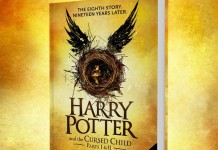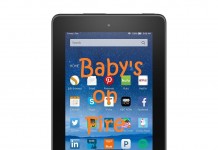
I read a particularly heartfelt essay on Digital Readers via TeleRead this week–one that explored the writer’s personal book memories and expounded on the many reasons why paper books, at least to her as a reader, were important in spite of their slow transition to digital format. After I finished reading the essay I pondered how the writer’s musings paralleled my own experiences with paper books. Written language seems to have an indelible impact on the brain; nearly everyone who has ever read a good book remembers when they first read it, where they were sitting (or standing) while they read it and most remember all the characters and even minute details penned within its pages.While I enjoyed reading the essayist’s delightfully varied book memories, she came just short of really explaining why many folks cling to the paper medium in a sort of desperate nostalgia. I’ve heard the “book smell” argument, the tactile-feel-of-the-page rebuttal, the defense of the cover, the full-page illustrations arguments, the ease-of-use pleas and the cases presented for paper books being one of the last “unplugged” items. I have not, however, heard or read about why a physical hold-it-in-your-hand paper book really appeals to humans.
To me, is it because the contents of paper books defy the physics of their appearance. Without the aid of electricity (and with little to no fanfare) what seems to be a bunch of squiggly lines–on pieces of pressed wood pulp slapped together with industrial glue–actually harbors an invisible treasure chest, just waiting to let that golden glow out onto the face of the reader. It is the closest thing to real magic that a logical personal can experience. Opening this unassuming recyclable shape sets the imagination loose… no film, no soundtrack, no digital screens, online platform, remote, Tivo or batteries needed. It is a self-contained, self-perpetuating parallel universe that can contain knowledge, opinions, poetry or an entire realm of fictional creatures entirely consumed in their own lives, waiting to begin or continue their journeys.
Just the act of reading provokes the most profound memories, which is something I’ve not only witnessed in others but have experienced, myself. My first memory of books was of my father reading The Hobbit out loud–to my brother and I–by the flickering light of a campfire (a thing which just made the trolls and goblins all the scarier.) The Lord of the Rings trilogy followed in the summers to come, interspersed with The Chronicles of Narnia, The Princess & The Goblin, Robinson Crusoe and many other tales. My parents gave us paper and colored pencils to draw with while we
listened, or laundry to fold; my mother would knit or sew as the stories filled the air while the television–in the corner of the room–sat dark and silent.
In middle and high school–during which I discovered how heartily I disliked the company of my fellow youngsters–my parents remedied my abject loneliness with piles of books; Austen and Forester; Peters and Shute; Stevenson and Defoe; Doyle, Dumas and Durrell… such minds were these! Such stories they wrote on this strangely bland medium of paper and ink. I began to look upon these writers first as visionaries, then friends, teachers and finally, muses. Like the essayist at the beginning of this piece I, too, began carefully selecting books to take with me various places, even if just going up a tree to sit among the breeze-blown branches and read.
That is the reason many are so disinclined to stop regarding paper books as ‘real books’ despite the advances of technology, social movements toward anything labeled ‘greener’ and the very real threat of younger generations growing up with all-digital libraries. It is not a thing so singular as ‘smell’, or ‘touch’ but it is rather the entire experience of opening printed paper pages,with no flash animation, video enhancements or any type of soundtrack–and yet still able to see a full realm billow out of this object, the details of which (if the writer knows their stuff) engage all of the senses, powered only by the brain. Books are literally the stuff dreams are made of, made tangible.
Can eBooks ever really capture that unique experience? As an eBook writer and proponent I can only say “I hope so.” EBooks continue to sell globally at mind-blowing rates so I assume at least a few million people-with-money think they come “close enough.” It is true that most eBooks need extra incentives in order to make up for the loss of paper smell and physical page-turning, such as swiping animation, music, movies, digital bookmarking, images and other bells and whistles.
But, hope is not lost for there be one more asset in the digitized books’ arsenal… a transition between the old and the new: the audio-book. It is a category within publishing that seems to sell extraordinarily well, and in this I am not surprised. The voice carries a weight to it, soulful inflections that digital text (nor computers) cannot plausibly imitate… yet. Handy to load on one’s music player and listen to on commute/ travel/ waiting-in-line, audio books seem to be the most popular when read by someone with a voice that can spark the imagination… one that
re-captures that ethereal, memory-laden notion of ‘real books’ being read aloud.


































I still buy pbooks (albeit hardcover not paperback) because I own the pbooks and can lend them to family and friends without the hassle of stripping DRM or doing something I am not legally permitted to do.
I also buy pbooks because they often cost less than the ebook and have a sense of permanence. Digital bytes give no sense of anything — I can’t feel them, see them, smell them, or taste them. pBooks provide a sensual experience that digital books cannot emulate.
I also buy pbooks because they give friends and relatives the opportunity to see what I am reading and perhaps discuss the books. I have found it hard to spontaneously enter into discussions about ebooks as no one knows what ebooks anyone else is reading. But if someone sees a book on my library shelf, spontaneous discussion about the book or the topic of the book often erupts.
I admit I prefer to read on my Sony 950 than the pbook, but pbooks are still eminently readable and desirable.
A while back I herd a son that went ‘video killed the radio star’ which got me wandering, did it? I don’t think so, when video came out it was thought that radio was obsolete, but radio, one of the most ancient mean of communication survived video.
When the internet came out some thought the television would become extinct but that has not happened!
I can go on and on with the x-box and other technological inovtions that were thought would oblitrate their predecessors but haven’t so let me surmise by saying ebooks have their uses but paper is here to stay and aint going nowhere!
iamtheegle.blogspot.com
This is a medieval discussion contending the role of the embodied book. The Biblical verse “the word was flesh and dwelt among us” is an endless trope. The contrast with the disembodied screen book is academic discord, while it occasionally prompts more popular curiosities.
I discuss the comparative affordances of the print and screen book and their trends toward interdependence in my own publication. You can get a (print) copy at futureofthebook.com.
It wasn’t video that killed the radio star, it was greed. And big corporations.
E-books are, in my optimistic view of the future, what is going to save readers and writers from mass produced pablum/pop-lit. A healthy variety of ebook sources (not just Kindle, or Adobe DRM’ed epub, etc.) is what is needed.
And p-books still have a place in all that. People don’t all think the same, learn the same, believe the same. Some people NEED the visceral feel of paper, that intimate contact with the media container. Some people don’t. There’s nothing wrong with that.